Q&A: Chris Horner on swapping the WorldTour for Airgas-Safeway
"Everybody's got haters. You have to live with it."
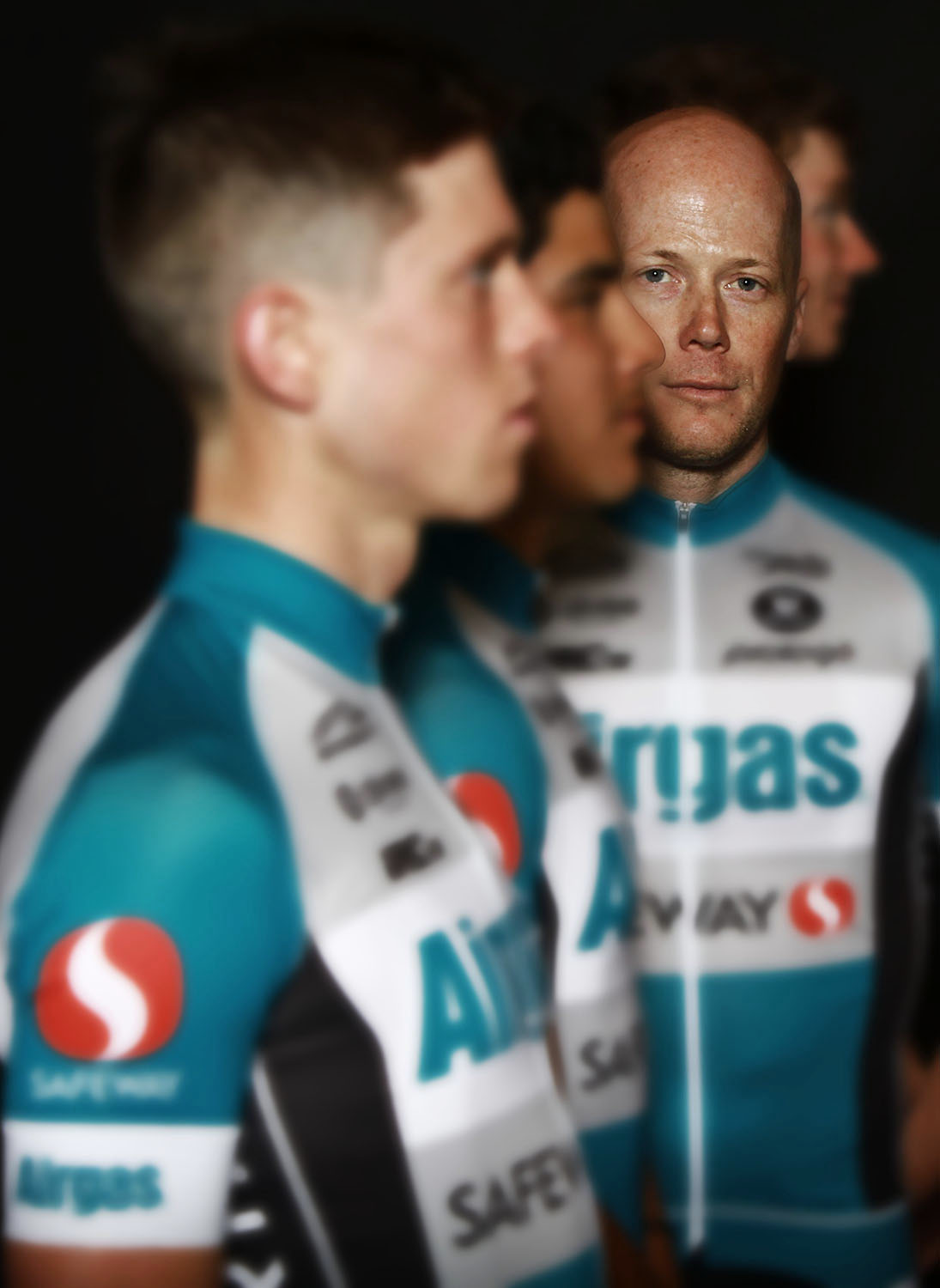
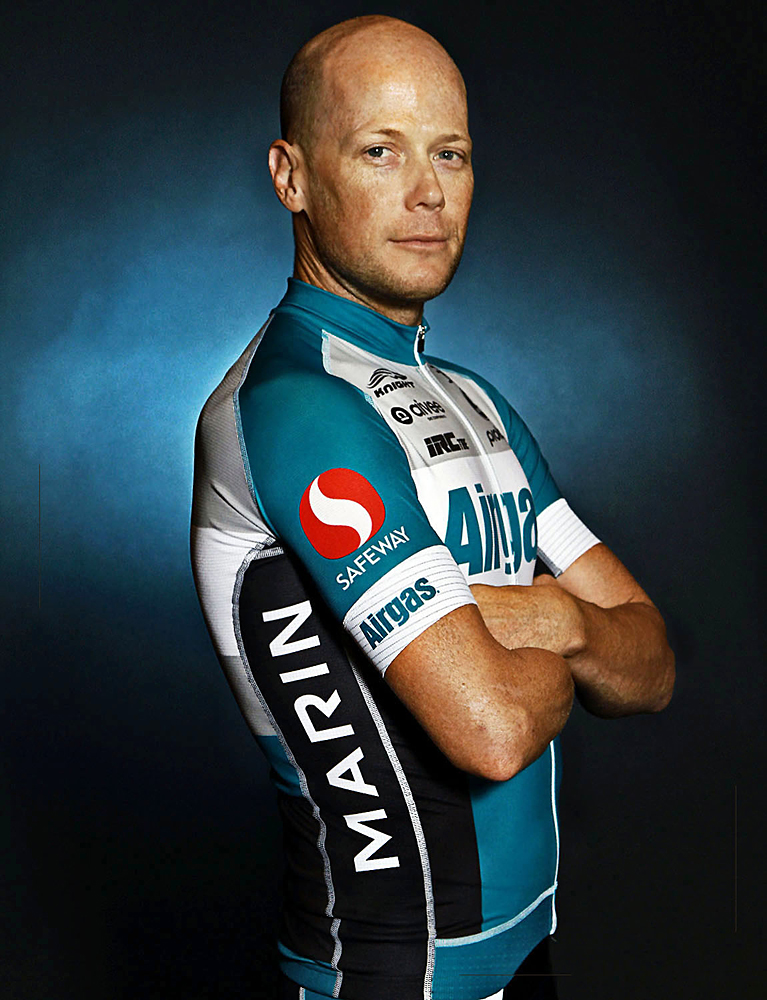
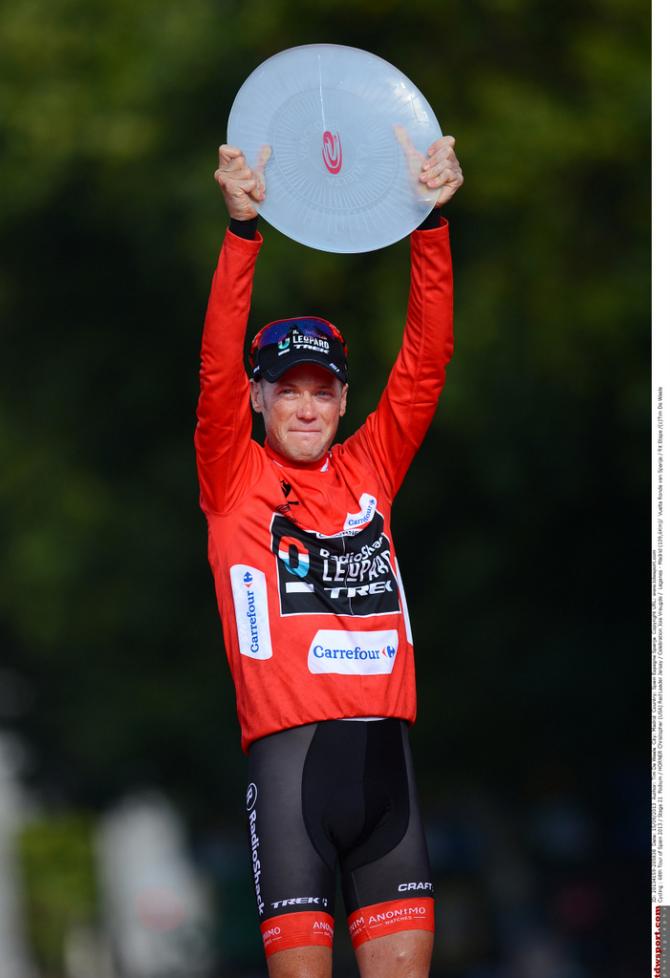
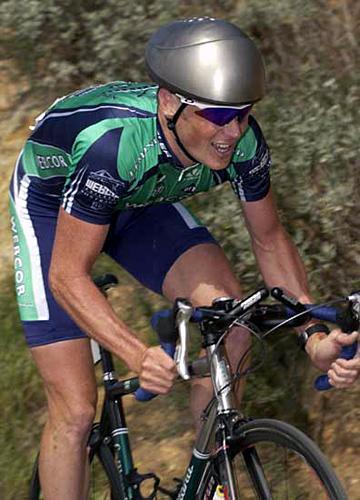
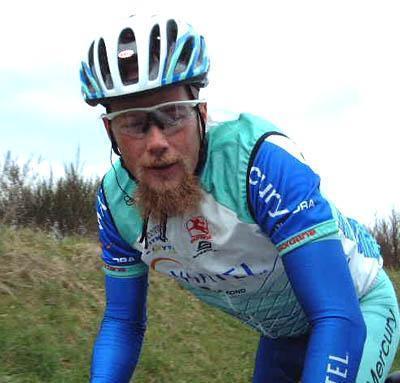
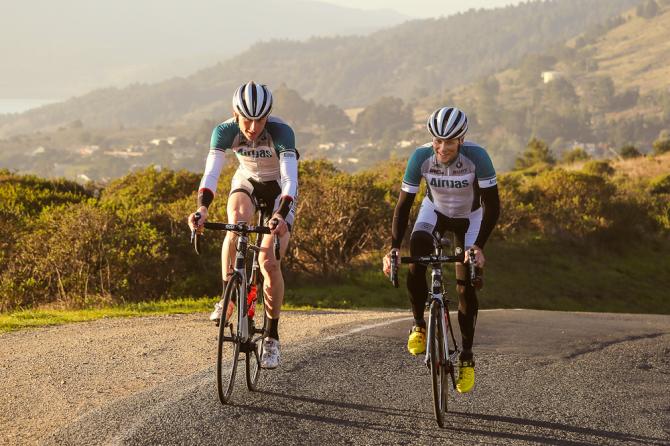

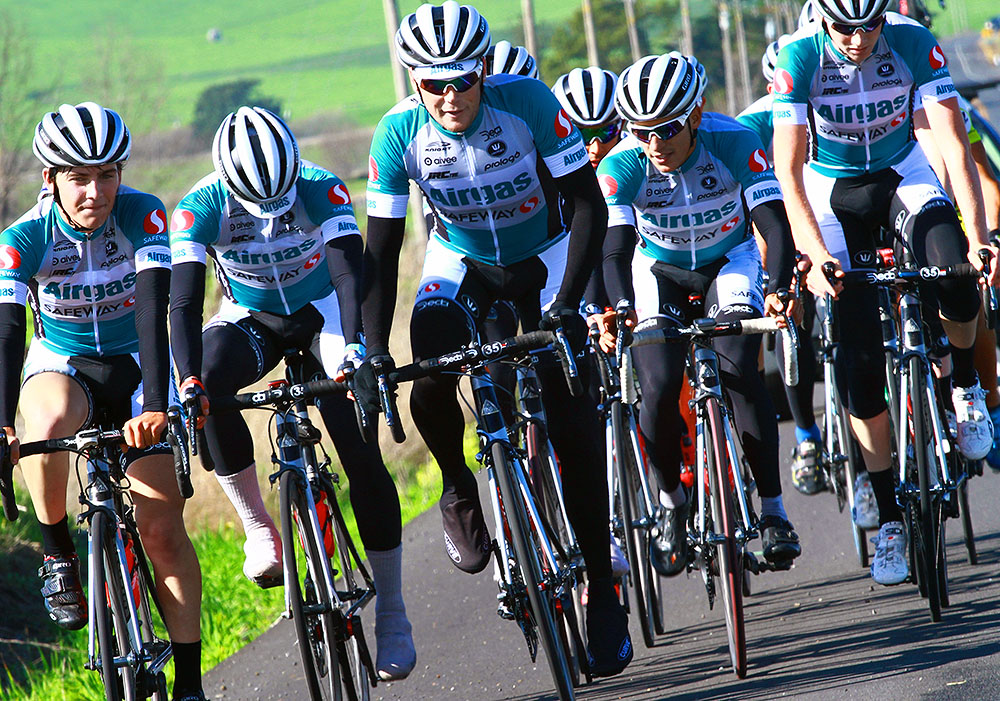
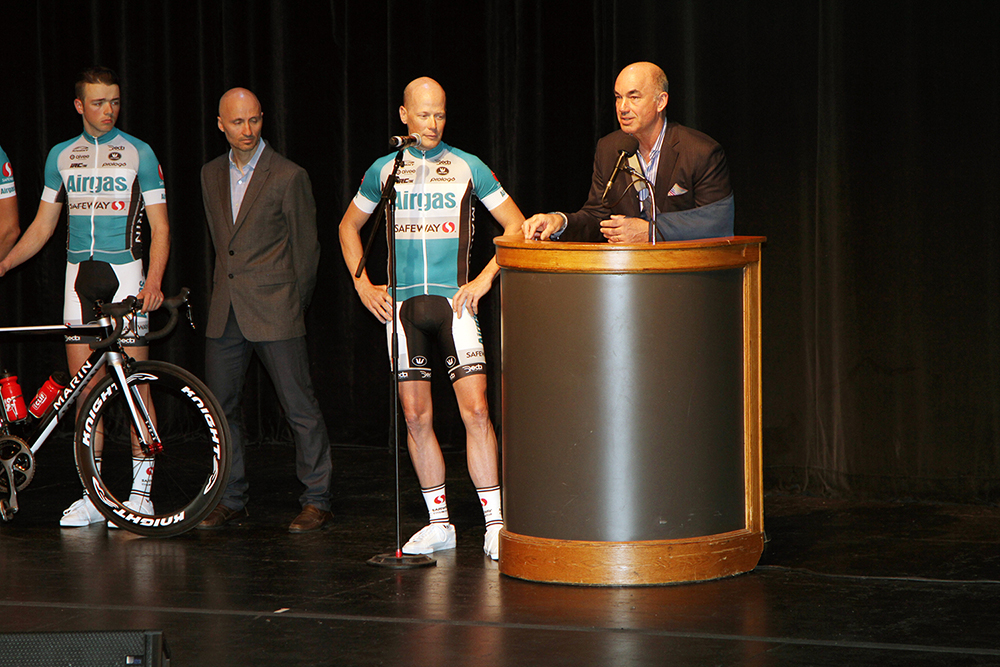
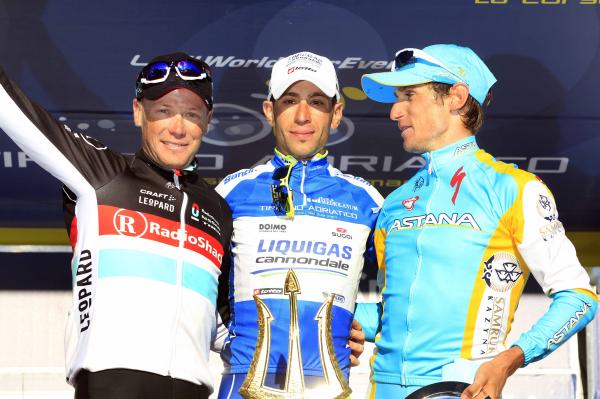
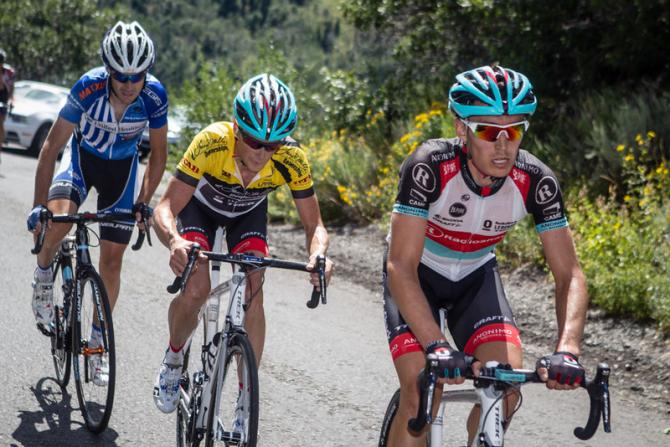
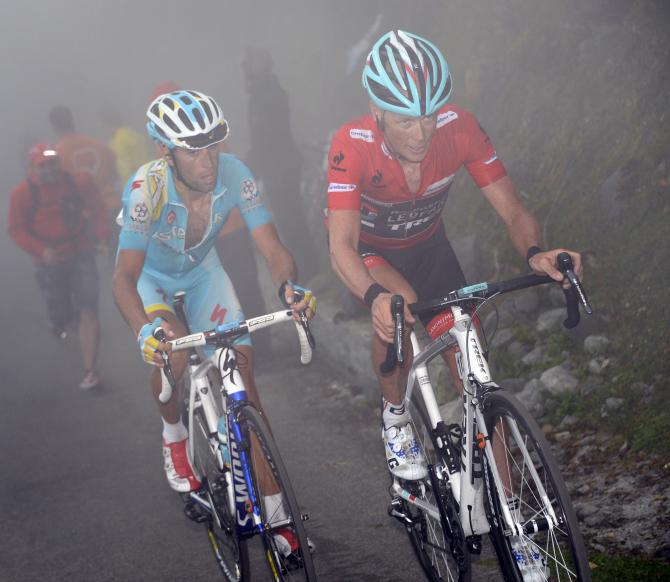
Chris Horner dropped a bomb on US domestic cycling earlier this year when, after a long and fruitful career in Europe, he signed with the fledgling Continental team Airgas-Safeway for the 2015 season.
The 43-year-old winner of the 2013 Vuelta a España is a father of four - his children are 17, 15, 13 and two months; the youngest was born on Christmas Day last year - and many observers wondered why he would want to return to cycling's third division to compete in races he left behind at least a decade previously.
Horner has remained mostly silent since he signed the deal with Airgas-Safeway principle Chris Johnson, but Cyclingnews caught up with him recently before the official team presentation in San Francsico. The following interview has been edited for brevity and clarity.
Cyclingnews: How did the deal with Airgas-Safeway come about?
Chris Horner: It came through fast, really. After the season was finishing last year in Europe I was talking a little bit with Lampre. My agent, Baden Cooke, got the call from [Chris] Johnson and he asked what I needed to come back and race in the US? I said, 'OK, I need X amount of dollars.' So Baden went back to Chris, and Chris said, 'We can do it.' We had the contract done in five days. It was pretty simple.
For me, too, I've got a new baby. For me it's kid number four, but it's my wife's first baby. So we wanted to make sure we could spend some time together. So if I was going to stay in Europe, then I needed to be able to have her travel to and from Europe all the time. The lifestyle is completely different and more complicated. So if I come back to the US, it becomes really easy and simple. Travel for her is easy. Taking the baby anywhere is easy.
Clearly, if you've spent anytime in Europe you understand, if you have a baby and you're in Europe it's complicated. So it makes things a lot easier by staying in the US. But I wanted to be with a fun team if I'm coming back to the US, and I want to have a good time, and I want to make some good money. I got all that all wrapped up in one package here at Airgas-Safeway. So I'm looking forward to it.
Get The Leadout Newsletter
The latest race content, interviews, features, reviews and expert buying guides, direct to your inbox!
CN: It sounds like it was a pretty easy decision for you?
Horner: It was done. It would have been nice if I could meet the kids and all that stuff before, just to see what it was, but the team had changed and altered a little bit, so I didn't know them from years before. It's not like they had five-year history where I could be like, 'Yeah, I could fit in there great.' So there was a little gamble there, but as soon as I showed up at training camp a few days ago, met the kids and went out riding with them, I was like, 'Ooh, made a good decision.'
CN: What are the first impressions of the team and your teammates now that you've had a few days to ride with them?
Horner: Fantastic. I met all of the kids all at the same time, which is always strange when you meet that many people at the same time, I was like, 'I can't remember all these names.' By day four I had down two-thirds of the group. But no, they're good guys and we've had good training so far. We have five or six guys who are already on form. And of course, some of the kids coming from the East Coast, you don't expect them to have form right now. But we've got a good group of guys. I think we're going to put on a good show and win a lot of races.
CN: Obviously you missed out on the California invitation.
Horner: Yeah, that was a bummer missing out on that. I expected to go.
CN: How does that change the focus now for the season?
Horner: We weren't planning on doing Tour of Mexico, but without California it opens up a bit of a gap. So in three weeks we'll take off and do Tour of Mexico. It's a UCI race, so it'll be the first UCI race for the team this year. It'll be a good way to start off and go ahead and get some points and some recognition for the team. So we'll go ahead and go down there.
It changes my training a little bit. With the baby coming at Christmas, I don't think I can be 100 percent for Mexico, but I'll try to crunch in these next three weeks before the race starts and see if I can't ride with something close to that. There are no guarantees, but Luis [Lemus] is going good, too. I see him in training camp already. So I think between him and I, we can come out with a good GC spot there in Tour of Mexico.
CN: So what about the [USA Cycling National Racing Calendar] races? I was looking at the team's proposed schedule and the first one is the Redlands Bicycle Classic.
Horner: I own Redlands. Everybody knows that. I've won it four times. That's my race. Basically they should just call it Redlands-Horner (laughs). OK, so I know it's not the same profile. It used to be seven-eight days when I was winning it. You'd do the hillclimb up Oak Glen and all that stuff. I grew up sharpening my teeth there at Redlands, so I'd like to go back there and win it. That's a big objective. For me, I think I can ride there 100 percent. The course isn't as hard as it used to be, it's fewer days, but they put in a good deal of good climbs.
The NRC is big. I've won it four times in my career. I won it in '96, then I came back and won it multiple times in the early 2000s. It really sets the precedent of which rider in the US is the best domestically or whatever you want to call it. So that's a big objective.
And honestly, there are only six or seven events, so you only need to focus on six or seven. When I won it back in the day it was from February to October, and all the events in that calendar were part of the NRC. Now it's more specific and streamlined. So it's not as difficult to focus. I don't have to be good for the whole season.
CN: When is the last time you actually rode in a criterium?
Horner: (Laughs). I don't know, but I've won some criteriums, though. OK, it should be a little bit of shock for me because it's been a little while, but I don't think it will be that big of a deal. I'll get in there for the first two or something and it will be a little bit different.
I've worked on putting some muscle on the last four months. So these last four months I went up form being an extra small to being between extra small and small. So I have a little more muscle on the upper body, specifically thinking about coming out of the corners and sprinting.
I really think it's important in the US, that if you want to win stage races you still gotta be able to sprint. You might not have to be at sprinter speed, but you still need to be able to sprint. Back in the days when I was racing domestically, I had a good sprint. It's disappeared at times, but hopefully the last four months in the gym have put that back in its place.
CN: One thing everybody wants to know is just why. Why come back and race in the US? You've had a great career, why come back at 43 and race on the Continental level?
Horner: Because I love racing bikes. Everybody is like, 'Why don't you retire? Why don't you go home? Why don't you do this?' Because I don't want to (laughs). The legs are still good. The heart and lungs are still good. OK, the other stuff I gotta patch up, repair, fix it up, tape it up. I have to kinesio tape the hamstring, kinesio tape the wrist, the neck, the lower back, whatever. I don't care. I patch it up.
As soon as I get in the race, honestly, the only time I feel 100 percent good and like I did when I was a kid, 20 years old, is between hour one and hour four on the bike. That's the time when I feel the most natural and the most young.
Everybody knows when you get over 40 you don't wake up and climb out of bed like you did when you were 20. So the only time I feel like I'm 20 years old is when I'm in the bike race between hour one and hour four. So it's a place I love to be. It gives me great sensations, I have a great time doing it and I'm one of the best in the world. Why would I retire?
CN: Your old boss at Lampre said that age was the deciding factor in not bringing you back for this year.
Horner: Oh, I think so. You look at Cadel Evans. I'm sure the whole reason why he left is you see where BMC is putting more pressure on Tejay [van Garderen] to be the leader of the team. And so of course that means it's pushing somebody out. You see Samuel Sanchez, one of the best riders in the world, same thing. He's having problems finding a job. But guess what, he's nearing 40, too. Cadel, same thing, he's nearing 40, too. Ivan Basso had one job offer from Tinkoff. He's nearing 40, too.
I could put together a team right now with near-40 and over-40 guys that would be the best in the world, probably ranked second or third best team in the world. But directors don't want us. That's just the way it is. For whatever reason, maybe because when we're talking in the meetings we're the same age, I don't know. But it's something that's literally true.
And then the sponsors. You look at Lampre, of course the first big problem that I had there is I'm not Italian, and Lampre sells in Italy. Merida doesn't sell in the US. They sell zero bikes here. So it doesn't do much to have a US rider.
Then you fill in the fact of my age, and you know that the age is the biggest problem. It's the biggest problem I had once I got over 40. Because you go talk to people and the first thing they say is what you've already asked me in this interview: why do you want to do it? My answer is always why not? Why wouldn't you? Is it better on your side?
CN: How difficult when you're 43 are contract negotiations? They seem difficult enough as it is, but when you're 43 it's got to be especially tough.
Horner: For me it's not so difficult now, because at my age it gets pretty easy to figure out. Because with Lampre I went and said, 'Hey, I want to do this race, I want to do that race. I'm not coming over to do little podunk races here and there or something like that. I want to do the biggest races in the world or I'm not going to come.'
At my age they knew I'd come and they knew I'd be in good shape. So if I flew back from the US they knew I'd be lean and fit and ready to go. I've proven that record. I'm a Grand Tour winner, so they were OK with that. So that was an easy contract.
Here, it was easy, too. I talked a little bit with Chris, and Chris said, 'Whatever races you want to do, those are the ones we'll do.' I was like, 'OK, I want to do the biggest US races.' Chris said, 'Great, those are the ones we want to do.' So that was pretty simple there.
And as far as anything else in the contract, there's not much to work out. You have to work out your pay. You have to work out if you want to do maybe some appearance times. So it gets pretty simple at my age to work it out.
CN: Do you anticipate ever going back to the WorldTour?
Horner: If the team grows and goes to the WorldTour level, I'd go back. But I don't want to live in Europe, and I only want to go back and do the big races. If I could race one Grand Tour a year, if I could do the Basque Country – because I think it's the most beautiful race outside the Grand Tours. It's the only race outside the Tour de France that has the best quality GC riders in the world. So when you win the Basque Country you beat the best in the world. Period.
Aside from the Tour de France, there's no better field in the world than the Basque Country. I like Amstel, Fleche, Liege, and I like Lombardy. So those are the races I'm in. One Grand Tour and those other races, I'd love to do. So if the team grew and the sponsor stepped in and tomorrow they said, 'Guess what? We're going to throw in a few million so you guys can go Pro Tour next year, do you want to go? I'd say, 'Yeah. I'm racing one more year, I guess.'
CN: Have you thought about how long you want to keep racing?
Horner: I don't really know. I'll just go year by year. I'll make a year-by-year decision. If the legs are good and I'm having a good time, then I'll keep coming back. Financially I'm in a good place. The retirement money is taken care of. The house is paid. The cars are paid off. I can do whatever I want. I can stop racing today, or I can keep racing if I want. But I'm having a good time and I'm still doing it without suffering a lot – other than when I get out of bed in the morning – then I'm happy.
CN: Are you OK with the idea that you'll never do another Grand Tour, you may never do another Pais Vasco?
Horner: Yeah, no problem. The tradeoff is that all year long I'm going to be close to my family. That's the tradeoff. The hardest thing about going over to Europe is being away from your family. So the tradeoff is five races for more family time.
CN: You probably saw or heard about the recent article in Velo that revisited many of the allegations about PED use.
Horner: Yeah. Yeah.
CN: Do you ever think when you read or hear about allegations like that, 'You know, I could just walk away from this now and never have to deal with it again.' Does that thought ever cross you mind?
Horner: You read an article and you're just like, 'Fuck man, I'm just bike racing here,' you know what I mean? I mean you come down to it, and you just think, 'OK, I love bike racing. I still like doing it. I still like showing up.'
I turned on the TV and I'm watching the Today Show, and they have Twitter or something like that, and they say 'Oh, we've got haters.' Everybody's got haters. If you're popular, if you're well-known, if you make big money, if you're in the public eye, you have somebody who hates you. That's the way it is. You have to live with it. And so the easiest thing for me is who cares? Who cares?
When I ride my bike, everywhere I go people in cars are yelling, 'Horner' and honking their horn. I've got people who pull over and stop to get a picture with me. So am I supposed to care about 10 guys on the world wide internet that hate me or write something bad? They hate me and write something bad, and I forget about it and go ride my bike for six hours and think, 'Damn, work was pretty good.'
Growing up in Missoula, Montana, Pat competed in his first bike race in 1985 at Flathead Lake. He studied English and journalism at the University of Oregon and has covered North American cycling extensively since 2009, as well as racing and teams in Europe and South America. Pat currently lives in the US outside of Portland, Oregon, with his imaginary dog Rusty.